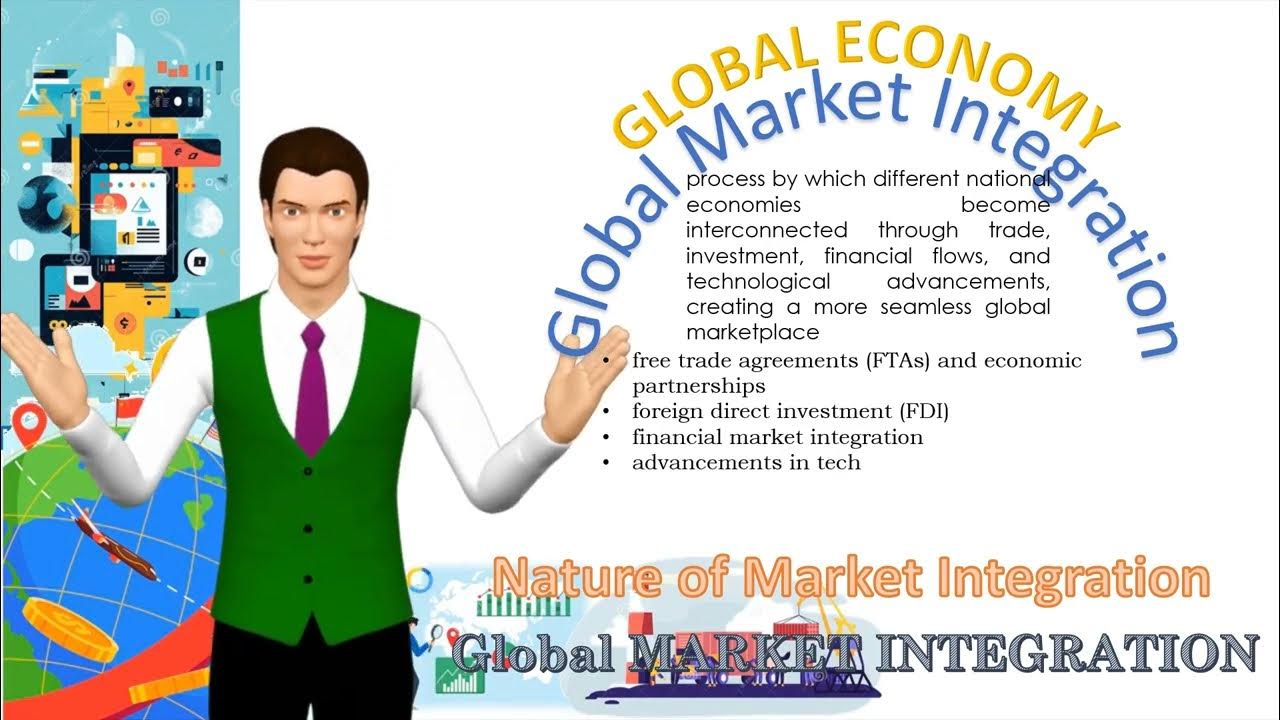Como as Multinacionais Controlam o Mundo (E Você Nem Percebe!) - Geobrasil
Summary
TLDRThis video delves into the powerful influence of multinational corporations (MNCs) on global markets, politics, and local economies. It explains how companies like Apple, McDonald's, and Amazon dominate industries, shape political decisions, and even impact social and environmental issues. While MNCs drive growth and innovation, their practices often harm local businesses, exploit cheap labor, and contribute to environmental damage. The video raises important questions about the ethical responsibilities of these corporations and invites viewers to reflect on how MNCs can reduce their negative impacts, especially in fragile economies.
Takeaways
- 😀 Multinational companies operate in multiple countries, controlling industries and economies on a global scale.
- 😀 Major multinational corporations like Apple, Amazon, and McDonald's have larger budgets than some entire countries.
- 😀 These corporations shape global markets by creating vast supply chains, influencing prices, and often reducing local competition.
- 😀 The political influence of multinational companies, such as lobbying to change laws, is known as 'soft power.'
- 😀 Some industries, like pharmaceuticals, wield significant influence over government policies and pricing, impacting public health.
- 😀 Social and environmental costs of multinational operations, such as exploiting cheap labor and environmental degradation, are significant concerns.
- 😀 Some industries, such as fashion and mining, are criticized for poor working conditions and damaging natural resources.
- 😀 Multinationals often use aggressive tax planning strategies to avoid paying taxes in the countries where they operate, harming local economies.
- 😀 Multinationals can boost local economies by creating jobs, but they may also drive smaller businesses out of the market due to their market dominance.
- 😀 The future of multinational corporations involves potential conflicts between their global power and national governments seeking to protect local economies and cultures.
Q & A
What are multinational companies and how do they operate?
-Multinational companies are businesses that operate in multiple countries, typically having a headquarters in one country and subsidiaries in others. These companies control vast global markets and can influence local economies and politics.
How do multinational companies impact global markets?
-Multinational companies, like McDonald's, Coca-Cola, and Nestlé, dominate global markets by making their products accessible worldwide. They often influence local economies, control prices, reduce competition, and change consumer behaviors.
What role do multinational corporations play in local economies?
-Multinational corporations can have both positive and negative effects on local economies. They create jobs and promote economic growth, but they can also harm local businesses by driving them out of the market with lower prices and more resources.
Can multinational companies influence government policies?
-Yes, multinational companies have significant influence on government policies. They use lobbying to change laws and regulations in their favor, especially in areas like health care, labor laws, and trade regulations.
What is 'soft power' in the context of multinational companies?
-'Soft power' refers to the influence that multinational companies have on governments through non-coercive means, such as lobbying, negotiations, and investments. This allows them to shape policies that benefit their interests.
How do multinational companies impact the environment?
-Many multinational companies have been criticized for their environmental impact, particularly in sectors like mining, fashion, and agriculture. They contribute to deforestation, pollution, and depletion of natural resources, harming ecosystems.
What are the social impacts of multinational corporations?
-Multinational corporations can have harmful social impacts by exploiting cheap labor in developing countries, often in conditions akin to slavery. This has been particularly criticized in industries like fashion, where companies like Nike have faced backlash.
How do multinational companies evade taxes?
-Multinational corporations often use aggressive tax planning strategies to reduce their tax liabilities, which can involve exploiting loopholes, shifting profits to tax havens, or manipulating transfer pricing to evade paying taxes in the countries where they operate.
What challenges do multinational companies face today?
-Multinational companies are increasingly facing challenges related to environmental sustainability, social responsibility, and ethical practices. Public pressure, especially from consumers and activists, is pushing them to adopt more sustainable and ethical practices.
How can multinational companies have a positive impact on local economies?
-While they can sometimes harm local businesses, multinational companies can also stimulate local economies by creating jobs, fostering innovation, and investing in infrastructure and technology. However, this depends on their commitment to ethical business practices and social responsibility.
Outlines

此内容仅限付费用户访问。 请升级后访问。
立即升级Mindmap

此内容仅限付费用户访问。 请升级后访问。
立即升级Keywords

此内容仅限付费用户访问。 请升级后访问。
立即升级Highlights

此内容仅限付费用户访问。 请升级后访问。
立即升级Transcripts

此内容仅限付费用户访问。 请升级后访问。
立即升级5.0 / 5 (0 votes)






